 If you feel that there’s an increase in ransomware activity, don’t worry; it’s not just you. Hackers are now taking greater advantage of ransomware, a threat that locks down files and returns them in exchange for a payment. This is wreaking havoc on the computing world. Even the FBI has acknowledged the threat, and has issued a warning that the most likely type of cyber extortion users will encounter is probably going to be DDoS attacks.
If you feel that there’s an increase in ransomware activity, don’t worry; it’s not just you. Hackers are now taking greater advantage of ransomware, a threat that locks down files and returns them in exchange for a payment. This is wreaking havoc on the computing world. Even the FBI has acknowledged the threat, and has issued a warning that the most likely type of cyber extortion users will encounter is probably going to be DDoS attacks.
Directive Blogs
 In today’s society, we throw the word “hack,” around without a second thought. This is especially true in the realm of cyber security for businesses. Have you ever taken a moment to think about why the term “hacker” was chosen as the title for those who partake in sketchy online activity? What exactly makes a hacker, a hacker?
In today’s society, we throw the word “hack,” around without a second thought. This is especially true in the realm of cyber security for businesses. Have you ever taken a moment to think about why the term “hacker” was chosen as the title for those who partake in sketchy online activity? What exactly makes a hacker, a hacker?
 We all know that hacking is one of the biggest risks we must deal with in today’s technology-based society. Most hackers out there try to take advantage of the latest vulnerabilities in software, but there are some that use a more sophisticated method. These hackers try take advantage of the weaknesses found in the human psyche, rather than the technological flaws that consistently get patched.
We all know that hacking is one of the biggest risks we must deal with in today’s technology-based society. Most hackers out there try to take advantage of the latest vulnerabilities in software, but there are some that use a more sophisticated method. These hackers try take advantage of the weaknesses found in the human psyche, rather than the technological flaws that consistently get patched.
 The online world is a scary place. Viruses, malware, spyware, adware, and more are all out there trying to get at your network. These threats are almost always prevalent, but compared to each other, some are vastly superior and far more dangerous and advanced than the others. Advanced malware has the potential to disrupt your business’s operations, cause extensive data loss, and more.
The online world is a scary place. Viruses, malware, spyware, adware, and more are all out there trying to get at your network. These threats are almost always prevalent, but compared to each other, some are vastly superior and far more dangerous and advanced than the others. Advanced malware has the potential to disrupt your business’s operations, cause extensive data loss, and more.
 One would assume that software preinstalled on a new PC is secure and has been properly vetted by the manufacturer. This is the case 99 percent of the time, but an exception has recently been discovered with the Superfish app, which came installed on new Lenovo computers sold between September and December of 2014. How can you protect your PC from this fishy security threat?
One would assume that software preinstalled on a new PC is secure and has been properly vetted by the manufacturer. This is the case 99 percent of the time, but an exception has recently been discovered with the Superfish app, which came installed on new Lenovo computers sold between September and December of 2014. How can you protect your PC from this fishy security threat?
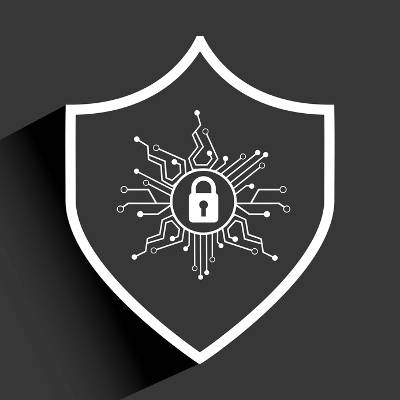 The Internet is up to its ears with threats and hackers, but some of the most annoying malicious entities are bots. These are systems which can gather information from all kinds of sources. While some aren’t malicious in nature (think SEO bots which gather data from websites), there are those that aren’t so innocent. These tend to fall into the hands of hackers and attempt to steal information or send spam.
The Internet is up to its ears with threats and hackers, but some of the most annoying malicious entities are bots. These are systems which can gather information from all kinds of sources. While some aren’t malicious in nature (think SEO bots which gather data from websites), there are those that aren’t so innocent. These tend to fall into the hands of hackers and attempt to steal information or send spam.
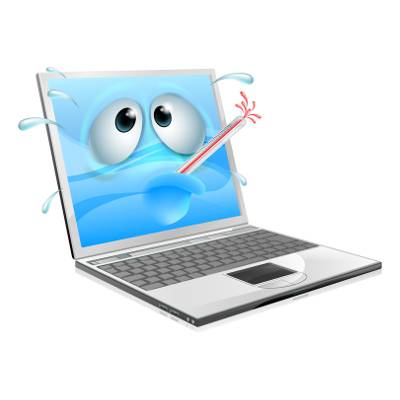 Grab your tissues, it’s flu season! Just like biological viruses such as the flu can cripple an entire office, digital viruses can cause a lot of trouble for businesses too. Both downtime-causing virus scenarios can be prevented if proper safety measures are followed, like sanitation and cybersecurity.
Grab your tissues, it’s flu season! Just like biological viruses such as the flu can cripple an entire office, digital viruses can cause a lot of trouble for businesses too. Both downtime-causing virus scenarios can be prevented if proper safety measures are followed, like sanitation and cybersecurity.
 The latest threats can put a damper on your business plan and put your company at risk. Therefore, it's only natural to protect yourself from them. This new threat in particular, Cryptowall 2.0, has the potential to do plenty of heavy-duty damage to your business's network, if given the opportunity.
The latest threats can put a damper on your business plan and put your company at risk. Therefore, it's only natural to protect yourself from them. This new threat in particular, Cryptowall 2.0, has the potential to do plenty of heavy-duty damage to your business's network, if given the opportunity.
 A new threat, dubbed Sandworm by iSight Partners, has been discovered. It is a cyber espionage campaign dating back to at least 2009, and is said to be based in Russia. Sandworm uses a previously undiscovered zero-day vulnerability in Windows operating systems to steal information from government leaders and organizations.
A new threat, dubbed Sandworm by iSight Partners, has been discovered. It is a cyber espionage campaign dating back to at least 2009, and is said to be based in Russia. Sandworm uses a previously undiscovered zero-day vulnerability in Windows operating systems to steal information from government leaders and organizations.
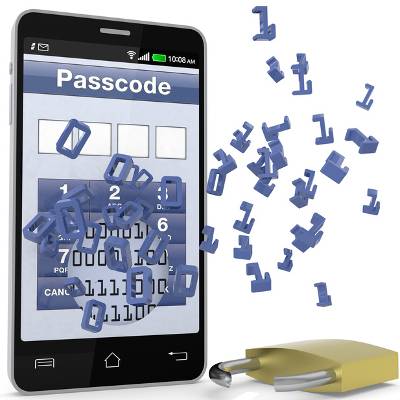 The trend of employees bringing in their own mobile devices to the office and using them for work purposes (BYOD) is growing rapidly. In fact, a new report from Juniper Research forecasts that by 2018, more than one billion employee-owned devices will be used in enterprises. A trend this big means that organizations have to take BYOD seriously.
The trend of employees bringing in their own mobile devices to the office and using them for work purposes (BYOD) is growing rapidly. In fact, a new report from Juniper Research forecasts that by 2018, more than one billion employee-owned devices will be used in enterprises. A trend this big means that organizations have to take BYOD seriously.
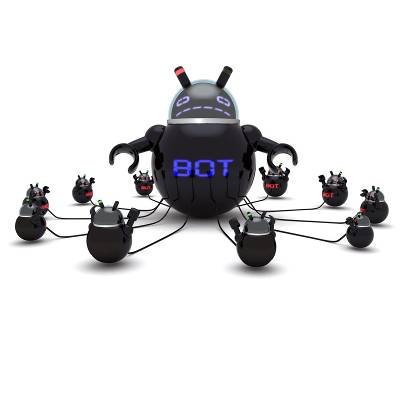 Hackers have many different tools at their disposal to access your computer. Some of these tools can even control your machine! When a hacker controls your PC, your computer is now part of a network made up of other compromised devices that they control. This compromised network is known as a botnet, and you don't want to be part of it!
Hackers have many different tools at their disposal to access your computer. Some of these tools can even control your machine! When a hacker controls your PC, your computer is now part of a network made up of other compromised devices that they control. This compromised network is known as a botnet, and you don't want to be part of it!
 There's a computer security threat so menacing that not even the best security technology can stop it. It's called psychology, and it's used with email phishing scams to trick users into overriding their security solution. The only way to stop this threat is with common sense, and unfortunately, there's no app for that.
There's a computer security threat so menacing that not even the best security technology can stop it. It's called psychology, and it's used with email phishing scams to trick users into overriding their security solution. The only way to stop this threat is with common sense, and unfortunately, there's no app for that.
 Are you going to make sure your machete is handy and start boarding up your windows for the coming of George Romero's slow-moving walking dead, or will you load up on ammo and lock yourself in a bunker for the more active and feral Max Brooks-type zombies? What about your data, like your Zombie Survival Guide E-book? Is it safe?
Are you going to make sure your machete is handy and start boarding up your windows for the coming of George Romero's slow-moving walking dead, or will you load up on ammo and lock yourself in a bunker for the more active and feral Max Brooks-type zombies? What about your data, like your Zombie Survival Guide E-book? Is it safe?
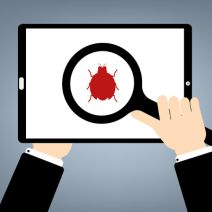 Technology is often exploited by hackers for their benefit, but one avenue of attack that’s consistently neglected is the mobile device. Smartphones and tablets are arguably at greater risk than desktops and workstations due to them being exposed to more wireless networks. One of the greatest threats to these devices is the botnet, a threat that usually targets desktop computers, enslaving them and turning the machine against its owner (and the rest of the Internet).
Technology is often exploited by hackers for their benefit, but one avenue of attack that’s consistently neglected is the mobile device. Smartphones and tablets are arguably at greater risk than desktops and workstations due to them being exposed to more wireless networks. One of the greatest threats to these devices is the botnet, a threat that usually targets desktop computers, enslaving them and turning the machine against its owner (and the rest of the Internet).
 There are many types of malware out there, but few are as scary as ransomware. Imagine being struck by a threat that instantaneously locks down your files and keeps you from accessing them until you pay a certain amount of money. If your business is targeted by ransomware, would you be able to protect it from dragging your operations into a bitter pit of despair?
There are many types of malware out there, but few are as scary as ransomware. Imagine being struck by a threat that instantaneously locks down your files and keeps you from accessing them until you pay a certain amount of money. If your business is targeted by ransomware, would you be able to protect it from dragging your operations into a bitter pit of despair?

